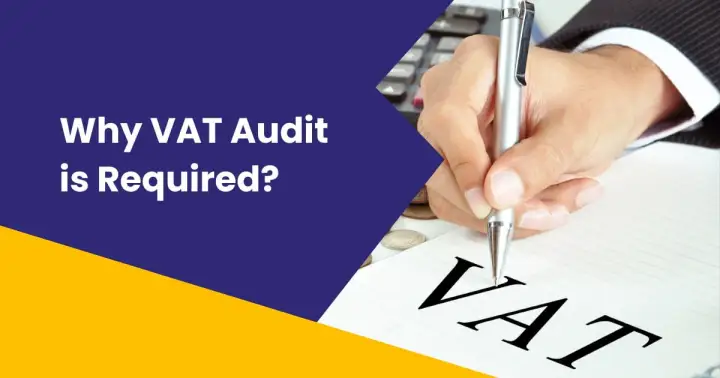
Table of Contents
Related Articles


Let's Talk
Sign Up For Free Consultation
federal tax authority Common Challenges Faced During FTA VAT Audits


Since the introduction of Value Added Tax (VAT) in the United Arab Emirates (UAE) on January 1, 2018, businesses have faced a significant shift in their tax obligations. The Federal Tax Authority (FTA) oversees the implementation and compliance of VAT rules & regulations across the UAE. While VAT aims to streamline the taxation process and increase government revenue, it has also introduced various challenges for businesses, especially during Federal Tax Authority audits for VAT. Understanding these challenges can help businesses navigate the complexities of audits and avoid potential penalties. At Tulpar Global Taxation, we provide FTA VAT audit facilities, backed by a team of FTA-certified tax agents dedicated to helping businesses in UAE comply with VAT rules & regulations effectively. Overcome challenges during FTA VAT audits in Dubai – UAE. Learn how to ensure compliance and avoid penalties with expert insights.
To ensure businesses are fully prepared for Federal Tax Authority (FTA) VAT audits, it is crucial to have a thorough understanding of the documentation, processes, and reporting requirements mandated by the FTA. Inaccurate record-keeping, delays in VAT return submissions, or incorrect filings can result in hefty penalties and increased scrutiny from the authorities. At Tulpar Global Taxation, our expert team provides comprehensive guidance to help businesses maintain accurate VAT records, minimize audit risks, and ensure full compliance with the UAE’s VAT regulations. By staying proactive and prepared, businesses can not only meet their tax obligations but also safeguard their reputation and financial stability during audits.
This blog will explore the common challenges faced during Federal Tax Authority audits, the importance of understanding VAT compliance, and how businesses can prepare for audits effectively.
Understanding the Importance of VAT Audits


What is a VAT ( Value Added Tax ) Audit?
A VAT audit is a process where the FTA evaluates a business’s acquiescence with the UAE VAT law. The audit aims to verify the accuracy of filing VAT returns in UAE, assess the correctness of VAT payments, and ensure that businesses are following the appropriate VAT rules & regulations.
Audits can be triggered by various factors, including discrepancies in Tax returns, random selection, or acquiescence assessments initiated by the FTA. The results of a Value Added Tax audit can lead to significant consequences, including penalties for non-acquiescence, which can severely impact a business’s financial standing.
Why VAT Audits Matter for Businesses in the UAE
For businesses operating in the UAE, Audits for VAT are critical for several reasons:
- Financial Accountability: Audits serve as a checkpoint for businesses to verify that all financial transactions, including revenue, expenses, and VAT calculations, are reported accurately. This accountability is essential for maintaining transparency, financial integrity, and building trust with stakeholders. Accurate reporting also ensures that businesses are only paying the required amount of VAT and avoiding potential overpayments or underpayments.
- Compliance with the Law: The UAE VAT law enforces strict regulations regarding how VAT must be calculated, reported, and paid. Non-compliance, whether intentional or accidental, can result in substantial fines, penalties, and even legal action. Additionally, businesses found to be non-compliant may suffer reputational damage, which can affect relationships with clients, suppliers, and partners. Consistent compliance with VAT laws helps businesses avoid these negative outcomes and maintain smooth operations.
- Enhancing Operational Efficiency: Preparing for an audit often reveals inefficiencies or gaps in a business’s accounting and financial processes. For instance, audit preparations may highlight outdated bookkeeping practices, inconsistencies in bookkeeping, or delays in VAT return submissions. Addressing these inefficiencies as part of the audit process can help streamline operations, improve the accuracy of financial reporting, and ensure that the business is better equipped for future audits.
- Risk Mitigation: VAT audits can expose areas where a business might be vulnerable to non-compliance risks, such as incomplete VAT filings, unreported transactions, or misinterpretation of VAT rules. Identifying and addressing these risks early reduces the chance of incurring penalties and helps businesses stay on top of evolving regulations. Proactive risk management through proper audit preparation also allows businesses to mitigate future risks and maintain long-term stability.
Given the importance of financial transparency, legal compliance, operational improvements, and risk management, businesses in the UAE must prioritize VAT compliance and take a strategic approach to audit preparation. This not only ensures smooth VAT processes but also strengthens the overall health and resilience of the business.
Common Challenges Faced During FTA VAT Audits


1. Lack of Proper Documentation
One of the most significant challenges businesses face during FTA audits for VAT is the lack of proper documentation. The FTA requires businesses to maintain comprehensive records of all financial transactions, including invoices, receipts, and accounting records.
Key Points to Consider:
- Missing Invoices: Many businesses fail to keep track of all invoices related to sales and purchases, leading to discrepancies in reported VAT.
- Inconsistent Records: Inaccurate or inconsistent record-keeping can result in a misunderstanding of the business’s tax obligations, prompting an audit.
Businesses must implement robust documentation practices to avoid these issues. This includes maintaining accurate invoices, receipts, and other supporting documents related to every transaction.
2. Complex VAT Regulations
Navigating the complexities of VAT rules & regulations can be overwhelming for businesses, especially those that are new to the VAT system. The UAE VAT law comprises various provisions related to registration, acquiescence, and specific mechanisms such as the reverse charge mechanism.
Challenges Related to Complexity:
- Misinterpretation of Regulations: Businesses may misinterpret their obligations, leading to incorrect VAT return filings.
- Staying Updated: Regular updates to VAT rules & regulations can cause confusion and result in businesses overlooking new acquiescence requirements.
To combat these challenges, businesses must invest time in understanding VAT rules & regulations and consult with VAT experts when necessary. Regular training sessions and updates on Value Added Tax laws can help ensure that staff are informed and equipped to handle VAT-related tasks.
3. Compliance with VAT Regulations
Compliance with VAT rules & regulations is more than just filing returns; it requires a comprehensive understanding of all obligations. Businesses need to ensure they comply with VAT laws across all transactions.
Common acquiescence Challenges:
- Non-acquiescence Risks: The FTA makes it mandatory for businesses to comply with VAT law. Non-acquiescence can result in penalties and fines that can severely affect financial health.
- Insufficient Staff Training: Employees may not receive adequate training on VAT rules & regulations, resulting in errors during VAT return filing.
Businesses must prioritize training and education for their staff to ensure they fully understand VAT obligations and acquiescence requirements.
4. Filing Accurate VAT Returns
Accurate VAT return filing is crucial for businesses in UAE. An audit may reveal inaccuracies in reported VAT amounts, leading to further scrutiny from the tax authority.
Common Issues in Filing:
- Calculation Errors: Miscalculating input VAT or output VAT can lead to discrepancies in return filings.
- Failure to Report Taxable Transactions: Businesses may fail to accurately categorize taxable goods and services, leading to acquiescence issues.
To minimize these errors, businesses should implement a system for double-checking VAT calculations and categorizing transactions appropriately.
5. Maintaining Comprehensive Accounting Records
An effective accounting system is essential for businesses to manage their VAT obligations. However, many businesses struggle to maintain comprehensive records that comply with VAT requirements.
Key Challenges:
- Use of Ineffective Accounting Software: Businesses may rely on accounting software that lacks VAT acquiescence features, making it challenging to track transactions accurately.
- Insufficient Record-Keeping Practices: Not maintaining proper documentation for all transactions can hinder the audit process and lead to findings of non-acquiescence.
Investing in reliable accounting software with built-in VAT features can help businesses streamline their record-keeping and ensure compliance with VAT rules & regulations.
6. Managing VAT Audits Efficiently
The audit process for VAT can be daunting for businesses, especially if they are unprepared. Understanding how to manage an audit efficiently is crucial for a smooth experience.
Common Pitfalls:
- Inadequate Preparation: Businesses that do not prepare adequately for an audit may face delays and additional scrutiny from the FTA.
- Lack of Understanding of Audit Procedures: Not understanding the audit process can lead to confusion and complications during the audit.
Businesses should create a detailed plan for audit preparation, including compiling necessary documentation and training staff on what to expect during an audit.
7. Penalties for Non-acquiescence
Penalties for non-acquiescence can be severe, with fines reaching up to 300% of the unpaid tax amount. Understanding the implications of non-acquiescence is crucial for businesses to avoid costly penalties.
Key Points:
- Awareness of Potential Fines: Many businesses may not be aware of the various penalties that can be imposed for non-acquiescence.
- Failure to Appeal Penalties: Some businesses may not understand how to appeal penalties imposed by the FTA, resulting in financial losses.
To mitigate these risks, businesses should familiarize themselves with the penalties associated with non-compliance and consider seeking professional advice on appealing penalties if necessary.
The Need for Acquiescence and Effective Audit Preparation


Given the challenges outlined above, businesses in UAE must prioritize acquiescence with VAT rules & regulations and prepare adequately for Federal Tax Authority audits. Proactive steps can minimize risks and ensure businesses are well-prepared for any audit.
The Role of Tulpar Global Taxation
At Tulpar Global Taxation, we understand the intricate challenges businesses face when dealing with VAT compliance and audits in the UAE. Our goal is to simplify this process and ensure that your business remains fully compliant with all VAT regulations. To achieve this, our team of FTA-certified tax agents offers a range of services tailored to meet the specific needs of businesses operating in the UAE:
- Ensuring Accurate VAT Returns: Filing VAT returns can be a complex process, and even small errors can lead to penalties or audits. Our team assists businesses by thoroughly reviewing all financial transactions to ensure accuracy and completeness in VAT returns. This not only minimizes the risk of triggering an audit but also ensures that businesses are not overpaying or underpaying VAT, helping them avoid unnecessary financial strain.
- Maintaining Proper Documentation: Proper documentation is the cornerstone of VAT compliance. At Tulpar Global Taxation, we help businesses establish and maintain comprehensive, organized records of invoices, receipts, and other supporting documents required for VAT reporting. This level of preparation ensures that businesses can easily present accurate financial data in the event of an audit, reducing the likelihood of disputes with the Federal Tax Authority (FTA).
- Complying with VAT Regulations: VAT laws in the UAE are subject to updates and changes, and staying up-to-date with these regulations can be challenging for businesses. Our experts provide ongoing insights and updates on VAT rules and regulations, helping businesses adapt to any changes. We work closely with clients to ensure that their VAT processes remain in compliance with current laws, safeguarding them against potential violations and penalties.
- Preparing for VAT Audits: Being prepared for a VAT audit is essential for any business. Our audit preparation services include a comprehensive review of financial records, VAT filings, and internal processes to identify any potential areas of concern. We guide businesses through the entire audit preparation process, ensuring that they are fully equipped to meet FTA requirements and reducing the stress associated with potential audits.
By partnering with Tulpar Global Taxation, businesses in the UAE can navigate the complexities of VAT compliance and audits with confidence. Our expert team is committed to providing reliable, tailored solutions that ensure businesses not only meet their tax obligations but also optimize their financial processes for long-term success.
Benefits of Engaging Tax Experts
Engaging tax experts like those at Tulpar Global Taxation can provide several benefits, including:
- Expertise: Our team possesses in-depth knowledge of UAE VAT rules & regulations and the audit process.
- Customized Solutions: We offer tailored solutions based on your business’s specific needs and circumstances.
- Peace of Mind: Knowing that VAT acquiescence is in the hands of professionals allows business owners to focus on core operations.
Steps to Prepare for an FTA VAT Audit


To mitigate the challenTo mitigate the challenges faced during FTA audits for VAT, businesses in UAE should take the following actions:ges faced during FTA audits for VAT, businesses in UAE should take the following actions:
1. Maintain Accurate Financial Records
- Implement Reliable Accounting Software: Invest in accounting software that supports VAT acquiescence and allows for accurate record-keeping.
- Document All Transactions: Ensure all sales and purchases are documented with proper invoices and receipts.
2. Stay Updated on VAT Regulations
- Regularly Review VAT Laws: Businesses should frequently review VAT laws and guidelines provided by the FTA to ensure ongoing acquiescence.
- Attend VAT Training Programs: Consider attending training sessions or workshops to enhance staff understanding of VAT rules & regulations.
3. Conduct Internal Audits
- Perform Regular Internal Audits: Conduct periodic internal audits to identify and rectify discrepancies in VAT acquiescence.
- Assess Compliance with VAT Obligations: Review VAT obligations regularly to ensure all requirements are met.
4. Prepare for External Audits
- Compile Documentation: Before an audit, compile all necessary documentation and ensure that records are complete and accurate.
- Train Staff on Audit Procedures: Prepare staff for potential audits by familiarizing them with audit procedures and expectations.
5. Engage Tax Experts
- Seek Professional Assistance: Consider hiring VAT experts or accounting firms to guide your business through the VAT acquiescence process and audit preparation.
- Utilize Services from Tulpar Global Taxation: Leverage the expertise of our certified tax agents to ensure comprehensive acquiescence and audit preparedness.
Conclusion
The introduction of VAT in the UAE has brought about various challenges for businesses, particularly during Federal Tax Authority audits. From inadequate documentation to complex regulations, the potential pitfalls are numerous. However, by understanding these challenges and implementing proactive measures, businesses can navigate the VAT landscape more effectively.
Engaging tax experts, maintaining accurate records, and preparing adequately for audits are essential steps in ensuring acquiescence and minimizing risks. At Tulpar Global Taxation, we are committed to providing the support businesses need to thrive in the evolving tax environment of the UAE. By partnering with us, businesses can focus on their core operations, knowing they are compliant with VAT rules & regulations and well-prepared for any audits that may arise.
If you need assistance with VAT acquiescence, audit preparation, or any other taxation-related services, like corporate Tax, excise tax or vat registration etc. don’t hesitate to contact us. Our team is here to help you succeed in your business journey while navigating the complexities of taxation.
Contact Us:
- Website: www.tulpartax.com
- Email: info@tulpartax.com
- Phone: +971-54 444 5124



